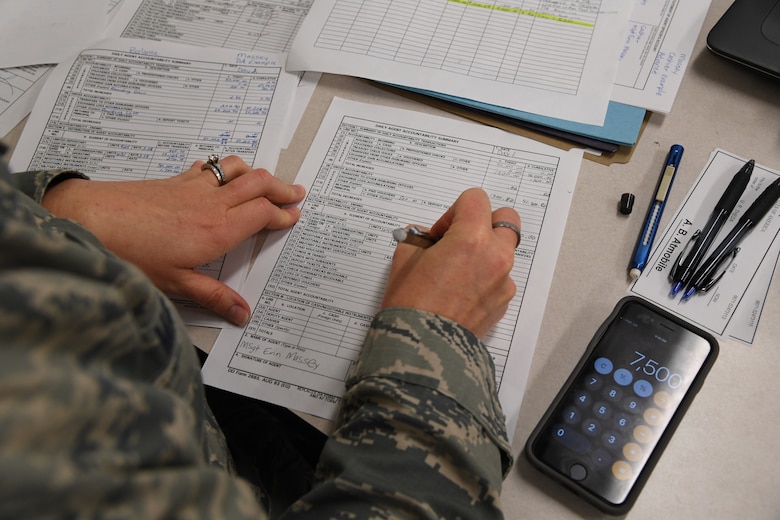During these times of uncertainty and instability, training new Airmen is necessary to accomplish the Air Force mission. The 81st Training Wing is aiming to produce Airmen faster and more efficiently with the new Direct to Duty Technical Training program.
This new program would send Airmen to their duty station after graduating basic military training instead of attending a technical training school.
Technical-training instructors would grade and track the Airmen from afar at the technical school location.
Second Air Force administered a trial run for four randomly selected Airmen in the knowledge management career field to begin their training at Goodfellow Air Force Base, Texas, instead of sending them to Keesler AFB.
Senior Master Sgt. Keith Clay, 336th Training Squadron superintendent, believes this program is an opportunity for more progressive training.
"The faster we can train Airmen; the faster we can support the Air Force mission," Clay said. "The purpose of this program is to not only train Airmen quicker, but more efficiently."
The trial run resulted in the Airmen completing their training successfully. Among the Airmen was Airman 1st Class Elizabeth Coulter, 17th Communications Squadron knowledge manager.
"The self-paced training has allowed me to develop into a better knowledge manager," Coulter said. "I have built my skills on experience and hands-on learning."
Staff Sgt. Rafael Daniel, 17th Communications Squadron Knowledge Management Center noncommissioned officer in charge and Coulter's supervisor, describes the impact of this structure on the knowledge managers and his Airmen.
"D2T2 paves a better pathway for our Airmen," Daniel said. "The process integrates them into our mission priorities and progresses them quicker. Going straight to their duty location eliminates the need for technical training at a technical school and also saves money for the Air Force that can be used to better a different aspect of training."
The success of this program has displayed the Air Force's continuous ability to adapt and overcome to complete the mission and remain resilient. Clay is hoping this process will expand the training of the Air Force and create a new direction for the future.
"The program is still being developed, but the initial trial was very successful," Clay said. "This can set a pathway for the future of Air Force training. Creating a faster, better and cost-efficient training process can produce exceptional Airmen across the Air Force."

Master Sgt. Erin Massey, 335th Training Squadron student, completes class work for the finance management course inside Allee Hall at Keesler Air Force Base, Miss., Feb. 3, 2020. This course, which graduated 220 students this past year, takes nine academic days to complete. Approximately 7,400 students go through the 335th TRS's 13 Air Force specialty codes each year. (U.S. Air Force photo by Kemberly Groue)






